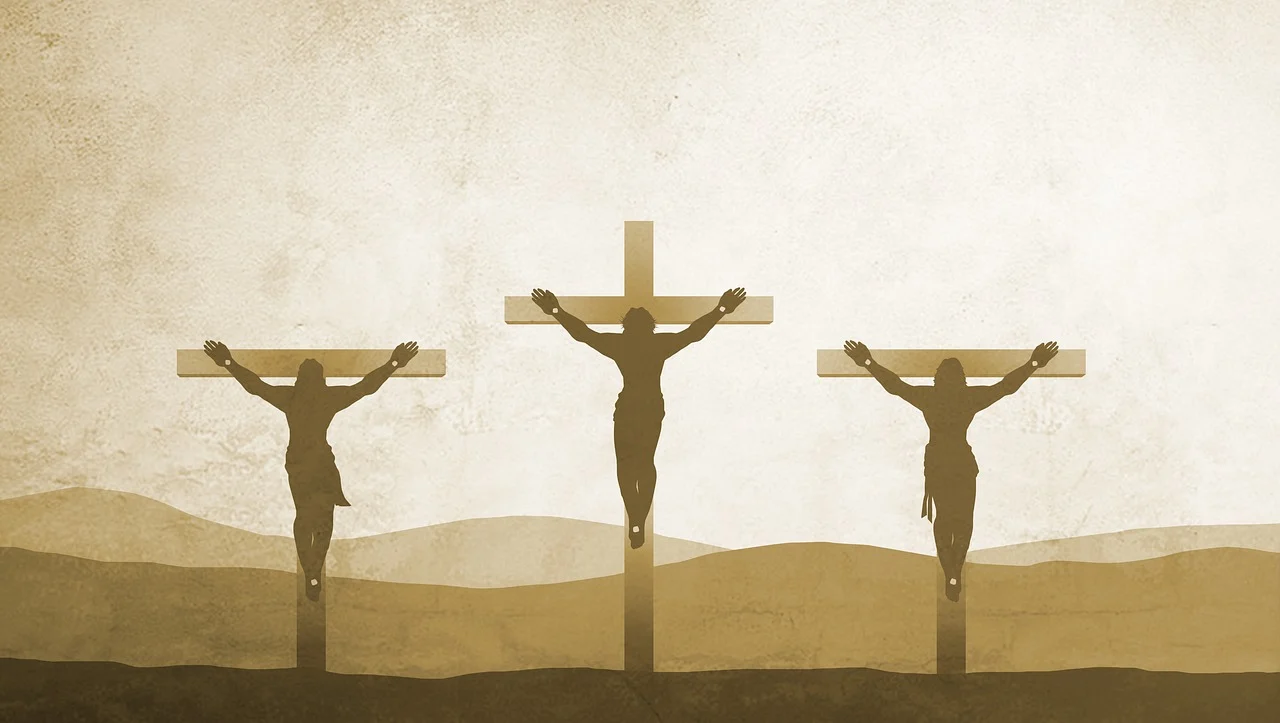The Meaning Of Easter :: Teaching Kids About The Death And Resurrection
The first time I ever remember talking with any of my children about Jesus’ crucifixion was in 2020 during the shutdown. We were in the car, driving near a church, and there was a large crucifix on display. My oldest, then 2, pointed at it and said “uh-oh Jesus.” I remember almost laughing at the comment, because it was really so truthful, and then immediately trying to figure out what to say in response. I remember saying something like, “oh yea, you see Jesus on the Cross? Jesus is hurt isn’t he?” My two-year-old said “yea.” and that was the end of it. At least for the time being. 
Our conversation about the crucifixion picked back up two years later right before he turned 4. It was a Friday during Lent and we were praying the Stations of the Cross together. When we got to the 11th station: Jesus is nailed to the cross, my son looked at me and point blank asked, “Mom, why did Jesus get nailed to the Cross?” That was a loaded question.
I told him that Jesus died on the Cross because he had to defeat the devil. It felt simple and true, and wasn’t giving too much unnecessary detail. But, my kid apparently pays attention and his favorite saint is St. Michael the Archangel, so his natural response was, “no, St. Michael the Archangel defeats the devil.” Our conversation ended with me comparing Jesus to Batman and St. Michael the Archangel to Robin, and he was satisfied with an archangel being Christ’s sidekick.
We’ve had similar conversations each year as we enter the season of Lent and celebrate the Resurrection during Easter, and now my daughter, who is almost 3, is asking similar questions. It can be really challenging when kids ask questions about topics that are sensitive or delicate, especially questions that involve death and/or faith.
As I’ve navigated these questions, this has always been my strategy:
- Let them lead the conversation. Basically, I acknowledge and respond to the comment, or answer the question as simply as possible, and that continues until they are satisfied with the conversation.
- Keep it simple. I try to give a one line answer and not to get over complicated.
- Stick with what you know to be true. We don’t know everything. And we can’t know everything. So I always remind myself of what I know to be true. I don’t make up answers or give half answers. I answer to the fullest of my ability.
- It’s ok to say “I don’t know”. When I’m asked a question that is beyond my knowledge, which is often, my answer is always “I don’t know, but maybe we can find out.” Finding out might involve asking a friend who knows more than me, looking something up on Catholic Answers or a similar website, and occasionally involves reading a new book. It’s good for our kids to see us learning, to see us acknowledge that we don’t everything, and to realize that it’s ok not to know everything.


















